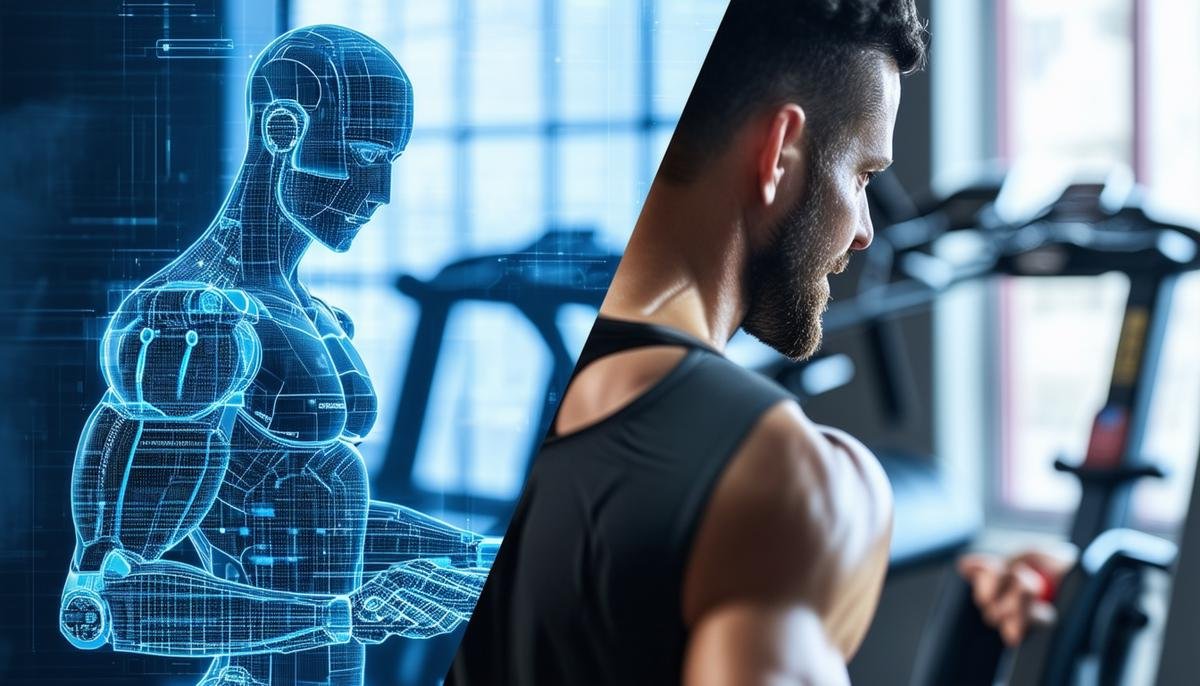AI-Powered Personalization in Freeletics
Freeletics harnesses AI to tailor workouts based on data from over 56 million users. Its sophisticated algorithms provide accurate estimations and continuously improve. Each workout session updates your profile, adjusting exercises, sets, and reps to match your progress.
Your feedback after workouts is crucial for refining recommendations. The AI considers factors like:
- Age
- Gender
- Fitness level
This ensures workouts align with your capabilities.
New users are initially grouped with others of similar levels, establishing a baseline for suggestions. Over time, the AI recalibrates, moving away from generic plans.
Human experts support this system. Sports scientists shape the AI’s recommendations, combining data-driven accuracy with expert knowledge.
The AI also uses clustering for precision, initially grouping you with similar users. As you provide more feedback, your plan becomes uniquely yours.
Freeletics is developing additional features, including motion tracking to correct form in real-time through the Coach+ initiative.
Comparing AI and Human Trainers
AI trainers excel in consistency, availability, and data-driven accuracy. They can instantly correlate real-time feedback with vast datasets, updating workout regimens dynamically.
Human trainers have advantages in:
- Motivation
- Personalized encouragement
- Emotional support
- Non-verbal cue interpretation
They also excel in flexibility for complex movements and injury management, providing hands-on corrections and adapting plans immediately when necessary.
A balanced fitness regimen might benefit from a hybrid approach—using AI for initial planning and daily adjustments, complemented by human trainers for nuanced support, motivation, and expert judgment on complex physical movements.

User Experience and Feedback
Freeletics’s AI capabilities receive mixed reviews. Many users appreciate the app’s adaptability and personalization, praising its extensive workout library and detailed instructional content.
Common criticisms include:
- Initial setup phase feeling generic
- Lack of emotional support
- Limited personalized encouragement
- Need for improved injury management
Freeletics actively listens to user feedback, as evidenced by continuous updates and feature enhancements like the upcoming motion tracking feature.

Integration of AI with Other Technologies
Freeletics integrates with wearable devices, allowing real-time metrics like heart rate and sleep patterns to refine AI estimations and adjustments.
Future technological integrations include:
- Motion tracking technology to monitor and correct exercise form in real-time using smartphone cameras.
- Chatbot functionality for a more interactive experience, providing nutrition advice, motivational support, and exercise technique clarification.
- Enhanced biometric feedback mechanisms.
- Improved social features to connect like-minded users.

Case Studies and Success Stories
Several users have shared their success stories with Freeletics:
| User | Background | Achievement | Time Frame |
|---|---|---|---|
| Claudia | Marketing executive | Weight loss, improved endurance and strength | 6 months |
| James | Runner | Diversified fitness regimen, achieved personal records | 1 year |
| Sara | School teacher | Gains in flexibility and coordination, reduced chronic back pain | 8 months |
| Alex | Student | Excelled in fitness goals by combining AI suggestions with personal tweaks | 1 year |
These stories demonstrate how Freeletics’s AI adapts to diverse backgrounds and fitness levels, facilitating long-term fitness achievements.

Balancing AI precision with human expertise can offer a comprehensive approach to fitness. Freeletics shows how technology can adapt to individual needs, while human trainers provide valuable personal connection and expertise. Combining both could lead to a more effective fitness journey.
“The future of fitness lies in the synergy between artificial intelligence and human expertise, creating a personalized and holistic approach to health and wellness.”
- Tolan S, Visuri A, Koutsouris D. Artificial intelligence and machine learning in fitness applications. IEEE Access. 2021;9:27329-27349.
- Thompson WR. Worldwide survey of fitness trends for 2021. ACSM’s Health & Fitness Journal. 2021;25(1):10-19.
- Grgic J, Schoenfeld BJ, Latella C. Resistance training frequency and skeletal muscle hypertrophy: A review of available evidence. J Sci Med Sport. 2019;22(3):361-370.




